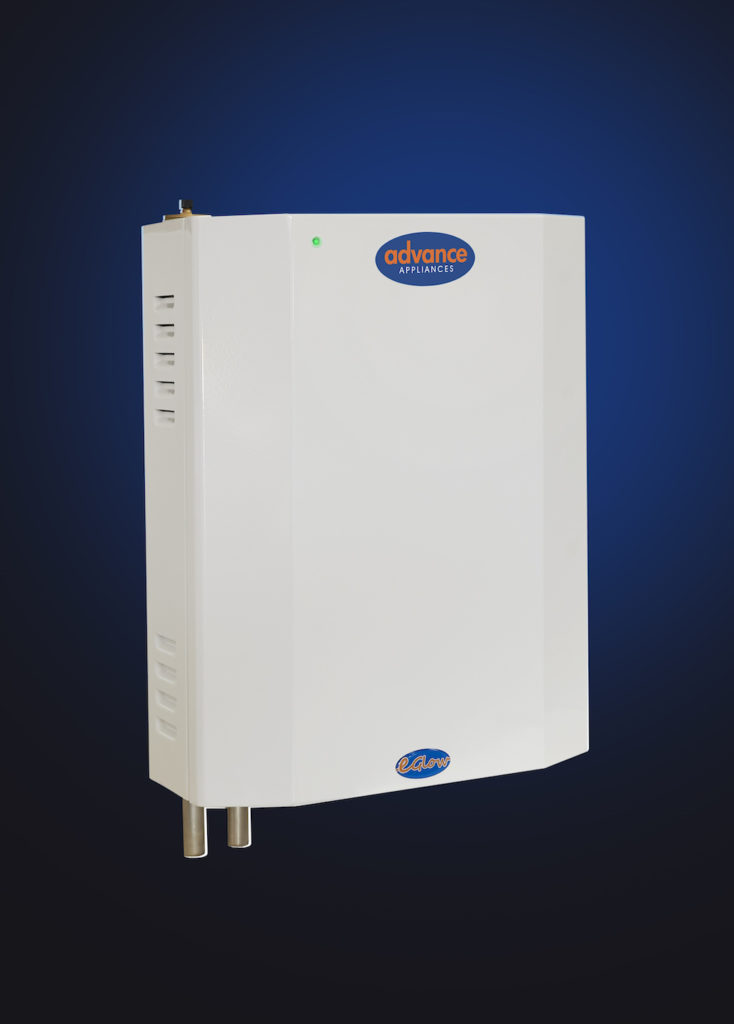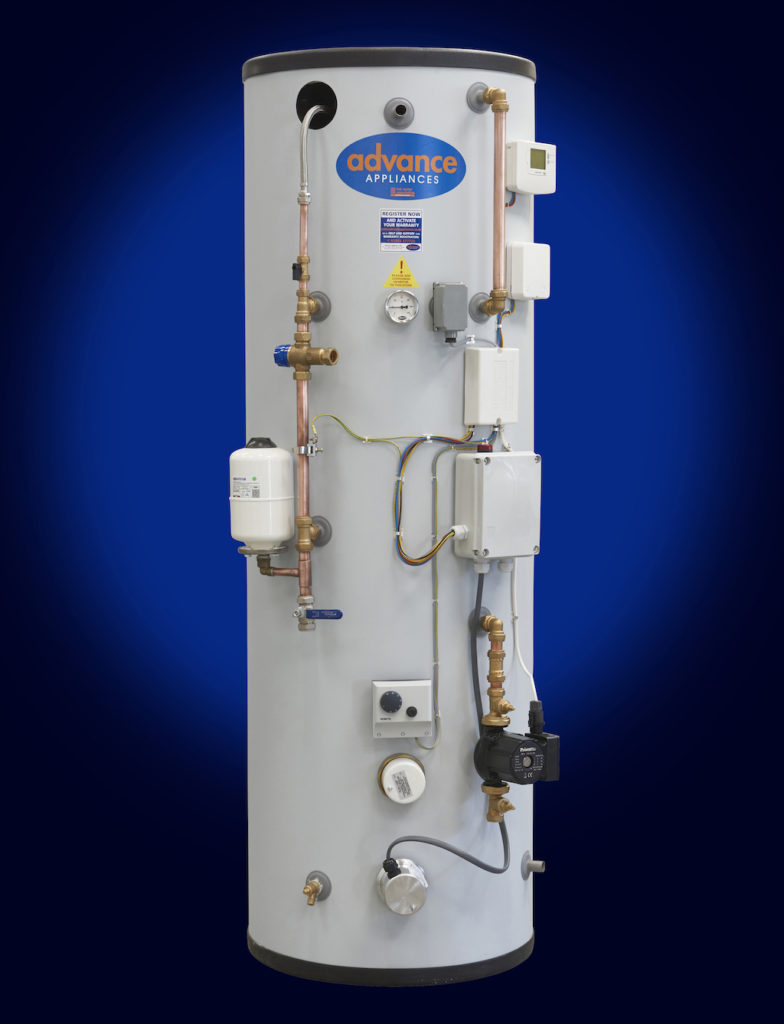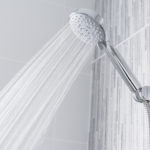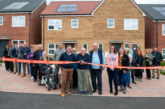Geoff Egginton at Advance Appliances discusses electric heating and hot water solutions for affordable housing.
With homes better insulated than ever, the demand for hot water is beginning to outstrip that of space heating as standards for airtightness and heat loss drive down the heating load. Hot water demand also continues to grow as the desire for properties with more than one bathroom increases.
In the pursuit of ever greener energy, government is pushing electricity as the main energy source in future new-builds. More of the electricity generated in the UK is from renewable resources. This can be done at a macro level with groups of wind turbines, hydro schemes and solar farms, or at a micro level with roof mounted solar panels or heat pumps for example. The means to harvest and store this energy along with demand management, largely through flexible tariffs, are being developed and improved.
So if the future is going to see a growth of electric heating systems, what solutions should local authority and housing association specifiers be aware of?
There are a number of flexible solutions in small dwellings such as point of use water heating and electric showers for example, and in bigger properties heat pumps may be preferred. However, this article will look at a few of the electric options for space heating and hot water.

Efficient at point of use
For space heating most people prefer wet systems with radiators or underfloor heating. The good news is that electric boilers for these applications have been around for many years and offer proven simple technology. Electric heating is inherently efficient at point of use as the energy input is converted directly to heat with only tiny losses.
Electric boilers provide all the things that you would expect from any boiler, including the ability to modulate, and some benefits you might not expect, such as not requiring flues or annual servicing. This reduces cost of installation and ongoing maintenance. In addition some are supplied for sealed system use with relief valves and expansion vessels fitted, and some include pumps.
Most households will have 100 amp supplies and boilers up to 12kW (40,000BTU) will draw around 50 amps. For space heating alone in a modern mid market property for example this is more than adequate. Advance Appliances offer the eGlow electric boiler in three outputs from 6kW to 12kW. The units modulate and can be supplied as standard 80˚C models or underfloor models, which run at 60˚C. These boilers have a pump and by-pass fitted shortening installation time.
For the provision of hot water Advance offers its Electric Thermal Store in two sizes — for single bathroom or twin bathroom applications. These hot water only stores offer tenants mains pressure hot water with safe vented storage using an internal heat exchanger. They are fitted with two 3kW stainless steel immersion heaters, the lower one for an off peak overnight charge, the higher one for boost or solar PV if available. Utilising off peak electricity makes them economical to run.

Storage solutions
A significant difference between an electric boiler and a gas boiler is power. Electric boilers do not offer a combination of hot water and heating in one wall mounted box with the ability to generate instantaneous hot water in useful amounts. A typical gas combi boiler is around 24kW, which can be seen would consume all of the electric energy available in the home. At this power gas combis deliver around 12 litres per minute of water at 40˚C; rates vary of course with incoming water temperatures and different boiler models. Although electric combination ‘boilers in a box’ exist, their flow rates tend to suffer in comparison, typically less than half of those which gas or oil boilers can offer.
The solution, fortunately, is straightforward. Storage is required. There are a number of significant advantages to this. Electricity can be consumed at the best tariffs, for example overnight or with flexible tariffs offering daytime top ups, and used throughout the day, making the system economical for tenants by reducing running costs.
Flow rates for these mains pressure hot water cylinders can be as high as 40 litres a minute at 60˚C, giving users the ability to have the washing machine on at the same time as the shower, for example. Advance offer this option with central heating primaries for the best of both worlds — providing the comfort of wet central heating and mains hot water. The central heating can be vented or sealed with the addition of a plate heat exchanger. Another advantage is the possible utilisation of solar PV, which can make a significant contribution to water heating throughout the year.
The unit is suitable for systems in apartments or small dwellings running four or five radiators. It is pre wired and pre plumbed with heating pump fitted. Heat Pumps have the highest profile in the electric/renewables market and Advance has a range of compatible hot water cylinders designed for optimum performance with this technology.









